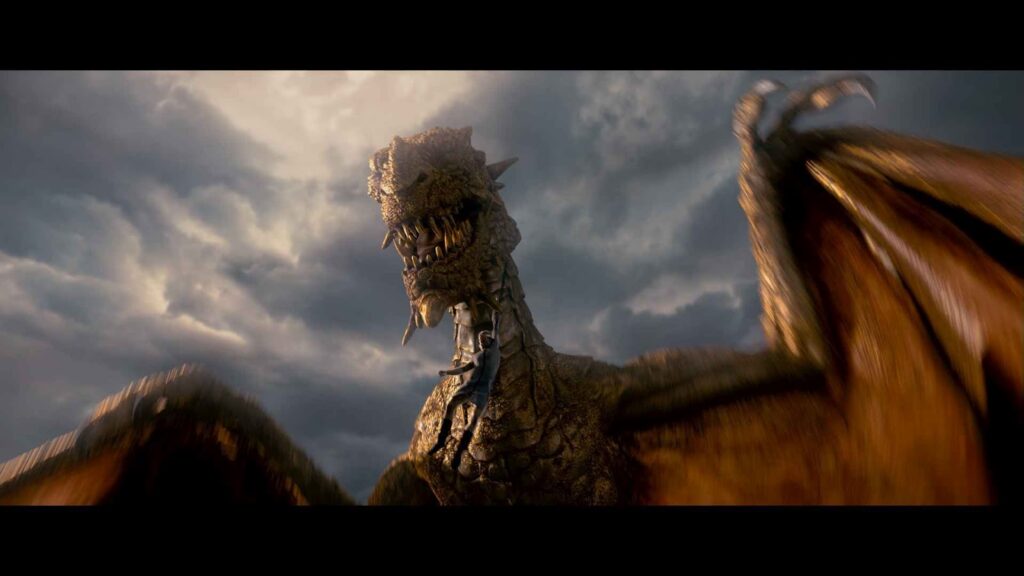Note: If you wish to receive, via e-mail, (1) my weekly newsletter or (2) daily copies of these posts, notify me at [email protected] and indicate which you would like. I promise not to share your e-mail address with anyone. To unsubscribe, send me a follow-up email.
Tuesday
A recent study about how social discontent contributes to the rise of populist demagogues confirms what Beowulf long ago had to say about public anger’s destructive consequences. Where modern social science talks about resentment, sadness, stress, worry and dismay, however, the Beowulf poet expresses the same feelings through two trolls and a dragon.
I owe my awareness of the new study to Washington Post columnist Charles Lane. In an article entitled “Populism thrives because people are mad, and also because they’re sad,” Lane writes about three social scientists who took on the question of whether anger drives populism. Their conclusion, he reports, is partially yes but that anger is not the only emotion involved:
Anger alone cannot account for recent U.S. vote shifts in favor of populist candidates (of both the left and right). Rather, the trends reflect a wider mix of negative emotions such as sadness, stress and worry.
The report, which studied Gallup polls from 2008-17, showed that “a county’s average anger level correlated positively with higher vote shares for Trump and for socialist Sen. Bernie Sanders (I-Vt.) in the 2016 GOP and Democratic primaries, respectively.”
According to Lane, the authors contend that (in their words) “anger no longer operates as a separate channel in driving the populist vote share.” Instead, “a more complex sense of malaise and gloom, rather than anger per se, drives the rise in populism.”
Lane concludes that “voters who propelled Trump to the White House seven years ago did so more in sorrow than in anger.”
Beowulf shows us, however, that it’s not either/or because anger and sorrow are integrally related. Resentful anger is embodied in the figure of Grendel, grieving anger in the figure of his mother. The dragon, meanwhile, is a figure of “malaise and gloom” and is yet a third form that anger can take. Whereas the sorrowing anger of Grendel’s mother blows hot, the depressed anger of the dragon blows cold. She is boiling rage, the dragon is frozen rage.
Nor do the resemblances end there. Just as Grendel’s mother can retreat into her cave after blowing up, so the hunkered-down dragon can come charging out of its own place of seclusion when it feels its prerogatives have been impinged upon. When it does so, it burns down everything around it. In short, think of the three monsters as the anger gang, with each posing a major threat to society.
I wrote my book How Beowulf Can Save America: An Epic Hero’s Guide to Defeating the Politics of Rage in 2008 when Barack Obama was running for reelection after having been “shellacked” (his word) by Tea Party populism two years before. At the time, Beowulf helped me diagnose the different forms of anger at play: there was certainly economic and racial resentment at work, but we also saw grief for a cherished image of America that some felt was being lost. Sometimes this grief manifested itself in troll violence, sometimes in dragon depression.
What I didn’t anticipate in 2008 was that a demagogue would one day turn enough of the American public into trolls and energized dragons to win an election. I also failed to fully appreciate the racial component of the various angers, and I was overly optimistic about Obama’s Beowulfian response.
For instance, I saw Obama standing strong and calm in the face of Grendelian resentment. I saw him successfully wielding the giant sword with which Beowulf kills the sorrowing rage of Grendel’s mother, that sword being the American principles found in The Declaration of Independence and The Constitution. And I saw him fighting off America’s dragon depression by galvanizing people to work collectively (as Beowulf works with Wiglaf) for the greater good.
I still see all these approaches as necessary. Unfortunately, since the monsters seem to have grown in power and subsumed a significant section of the population, the task of defeating them appears harder than I once thought it was.
So I disagree with Lane when he says that Trump was the beneficiary of sorrow more than anger, which almost makes the monsters seem noble. Anger can transform resentment, sorrow and malaise into lethal behavior, giving us hideous beasts who are capable of slaughtering shoppers, worshippers and school children; storming the Capitol; or giving a demagogue carte blanche to do whatever he wants.
Unless a riled-up public chooses to be Beowulf strong rather than indulging in dark rage, they will do damage to others, to themselves, and to this country we love.
